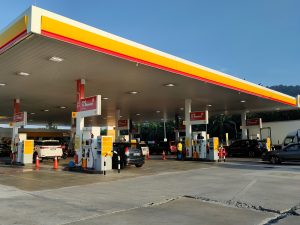Diesel prices yesterday jumped by more than 50 percent in Malaysia, after Prime Minister Anwar Ibrahim’s government began to revamp its long-standing system of fuel subsidies in order to reduce the pressure on the national accounts.
Speaking yesterday, Anwar, who is also serving as finance minister, recognized that the reform might be unpopular with some, but was necessary to “save” the country. “All prime ministers before this had agreed on the targeted subsidy, but there was no political will to implement it because of the risks involved,” the national news agency Bernama quoted Anwar as saying. “However, to save the country, we have no choice.”
The restructuring, which saw diesel prices jump around 56 percent from 2.15 ringgit ($0.45) to 3.35 ringgit ($0.71) per liter, eliminates blanket energy subsidies and instead targets those who are most in need. The restructuring is also intended to combat the smuggling of subsidized diesel from Malaysia to neighboring countries, where it can be sold at a significant profit, the country’s second finance minister, Amir Hamzah Azizan, said yesterday.
“We are doing this because the leakages across our borders is huge,” he said, according to Channel News Asia.
Diesel for low-income groups, including fishermen and farmers, will continue to be subsidized, as will its use for school buses and ambulances, Amir Hamzah said. Diesel will also continue to be sold at the subsidized rate in the eastern states of Sabah and Sarawak, which lag economically behind the wealthy states of peninsular Malaysia.
Subsidy reform has been on Anwar’s agenda since he took office in November 2022. Just weeks into his term, he announced a plan to review the country’s elaborate system of cost-of-living subsidies, which cover everything from fuel and electricity to basic items like rice, flour, and cooking oil. “The provision of subsidies to the people should be implemented in a targeted manner to ensure it is enjoyed by the groups that deserve it,” Anwar said, the New Straits Times reported at the time.
The reason for the reform is the crushing cost of maintaining this system of subsidies, which has risen over the past decade as commodity prices have swelled, in some cases multiple times over. According to Reuters, the cost of Malaysia’s diesel subsidy alone has risen 10-fold from 1.4 billion ringgits ($296 million) in 2019 to 14.3 billion ringgits in 2023 (just over $3 billion). In total, Malaysia is expected to spend 52.8 billion ringgits ($11.1 billion) on subsidies and social assistance this year, down from about 64.2 billion ringgits ($13.6 billion) in 2023.
The cut in the diesel subsidy is expected to save about 4 billion ringgits ($853 million) annually, which the government says it will re-direct to low-income groups. As Reuters reported yesterday, citing the Ministry of Finance, diesel remains cheap in Malaysia by regional standards. The fuel retails for the equivalent of 8.79 ringgit per liter in Singapore, 4.43 ringgit in Indonesia, and 4.24 ringgit in Thailand.
At the same time, the sudden relative jump in the cost of diesel will pose political risks for Anwar. It could create a potential political foothold for the right-wing Malay populists of the opposition Perikatan Nasional coalition who have hammered the Malaysian leader relentlessly on a number of fronts since his elevation to office some 20 months ago.
Anwar said yesterday that his opponents would attack him regardless of what he does as prime minister, and so there was no liability in leaning into the attacks and undertaking difficult reforms. “We must also know that whatever we do, we will be severely criticized with all sorts of slander and lies,” he said.
The government eventually plans to follow suit with gasoline subsidies, but will no doubt carefully gauge the political impact of the diesel subsidy reform before acting.

































